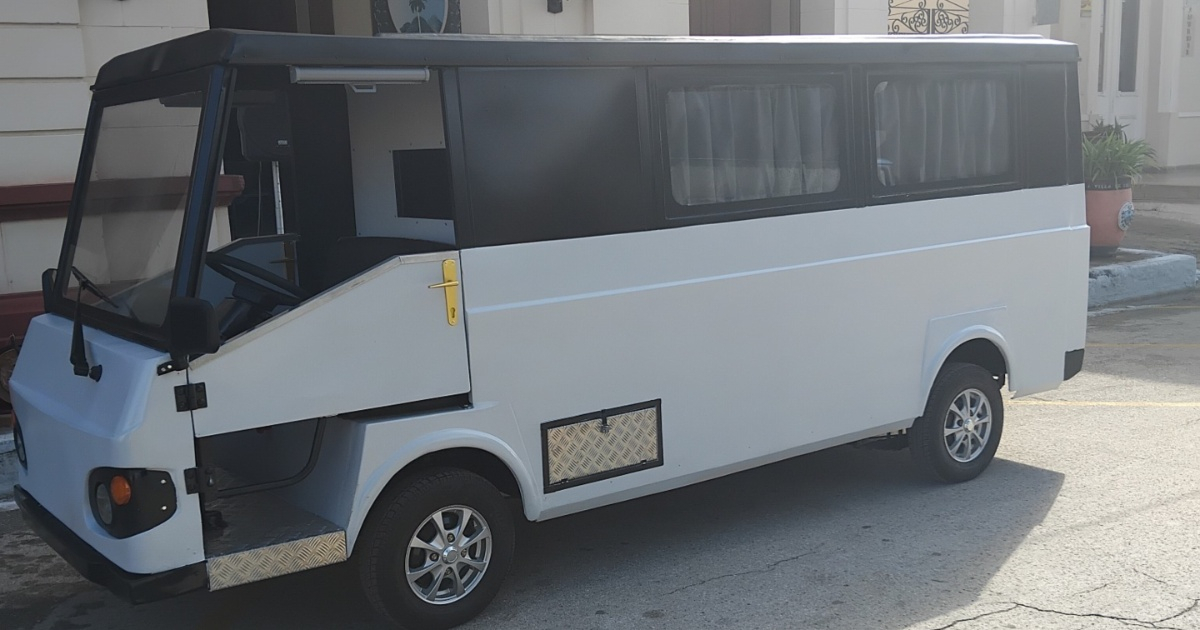Eduardo Rodríguez Dávila, Cuba's Minister of Transportation, announced on Sunday that the regime has initiated the assembly of the first batch of electric vehicles intended for funeral transport. On his Facebook profile, the minister noted that this process involves the participation of the Military Industry Union (UIM). Rodríguez made this statement in a detailed post where he provided an overview of the transportation situation in Havana after visiting every province in the country as part of a National Assembly of People's Power oversight exercise.
Although specific details about the number of electric hearses being produced or their delivery timelines were not disclosed, Rodríguez mentioned that the initiative aims to enhance services related to the transport of deceased individuals, a sector that, like others in public and state transportation, has experienced significant decline in recent years. The project is part of a broader effort to "halt the deterioration of public transportation services and initiate recovery," according to the minister.
Simultaneously, efforts are underway to restore buses, deploy electric minibuses, improve railway terminals, and introduce eco-friendly tricycles in municipalities like Regla. The involvement of the Military Industry Union in this new endeavor expands the military's presence in traditionally civilian roles, such as producing sanitary, cargo, and now funeral transport.
The severe fuel shortage has forced the Cuban regime to explore alternative solutions, such as utilizing electric vehicles and incorporating renewable technologies in strategic transportation sectors. Despite these initiatives, tangible results remain limited in the face of the widespread collapse of the nation's mobility system.
Rodríguez Dávila also revealed that, alongside this funeral vehicle assembly, progress is being made on a project to establish the country's first electric bus terminal powered by renewable sources in the capital. Additionally, new railway routes and a reorganization of urban transit are in the works in response to the increasing use of electric motorcycles and scooters.
Recently, an electric hearse was delivered in the Villa Clara municipality of Placetas. Kirenia Bermúdez Quesada, an employee of the Communal Company in Villa Clara, confirmed on social media that municipal officials, Sancti Spíritus directors, and sector workers participated in the vehicle's delivery. Numerous forum users commented on Facebook that this initiative should be replicated in other municipalities where residents must improvise transportation means for their loved ones' remains.
The funeral services situation in Cuba is dire due to a lack of operational hearses, spare parts shortages, and inadequate maintenance. This issue affects multiple provinces, forcing families to resort to alternative transportation methods for burials.
Electric Funeral Vehicles in Cuba: Key Questions Answered
Why is Cuba assembling electric hearses?
Cuba is assembling electric hearses to improve funeral transport services, which have deteriorated significantly, and to address the severe fuel shortage by utilizing electric vehicles.
What role does the Military Industry Union play in this project?
The Military Industry Union is involved in the assembly of electric hearses, expanding its reach into civilian sectors such as funeral transport, sanitary, and cargo production.
What other transportation initiatives is Cuba pursuing?
Cuba is also working on restoring buses, deploying electric minibuses, improving railway terminals, introducing eco-friendly tricycles, and establishing the first electric bus terminal powered by renewable energy.
